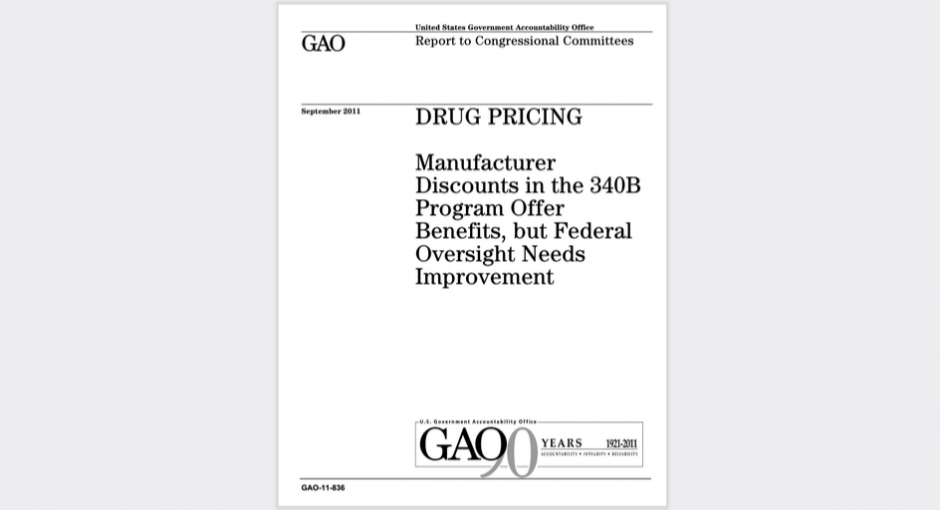In addition to weighing in on the ongoing 340B contract pharmacy standoff (see related story), the U.S. House Appropriations Committee has entered the thicket of the highly controversial topics of 340B patient definition and provider eligibility.
In its report accompanying the funding bill that includes the U.S Health Resources and Services Administration (HRSA), the committee directs:
- the U.S. Government Accountability Office (GAO) to update its pivotal 2011 report on the 340B program’s performance. That report, required by the Affordable Care Act, concluded that HRSA’s oversight was “inadequate to provide reasonable assurance that covered entities and drug manufacturers are in compliance with program requirements—such as, entities’ transfer of drugs purchased at 340B prices only to eligible patients, and manufacturers’ sale of drugs to covered entities at or below the 340B price.”
- HRSA implemented three of the 2011 GAO report’s five recommendations (regarding covered entity audits, guidance for cases in which distribution of drugs is restricted, and reviews of manufacturers’ plans to restrict distribution of drugs at 340B prices). The appropriations committee’s report directs HRSA, within 120 days of the appropriations bill’s enactment, to report “on plans to implement the remaining two recommendations, which focus on clarifying eligibility criteria for 340B patients and providers.” HRSA, under both Republican and Democratic administrations, proposed a narrower patient definition as well as some restrictions on provider eligibility. However, these proposals were never finalized after significant pushback from 340B provider groups.
- The report says funding for HRSA’s Office of Pharmacy Affairs (OPA), which runs the 340B program, would jump from $10.2 million this fiscal year to $17.2 million in fiscal year 2022—a 68% increase, and the amount that the Biden administration sought.
- The report lauds community health centers as “model stewards of the program.”
The report is silent on the Biden administration’s proposal in May in its fiscal 2022 budget that the 340B statute be amended to let HRSA audit 340B covered entities “to determine how net income from purchases under [340B] are used by the covered entity.” This request had come as a surprise to 340B providers, and national 340B groups panned the idea.
In addition, the concept of a 0.1% user fee on 340B program sales to help fund HRSA oversight activities, is officially dead. The Biden administration became the first administration in 10 years not to request the user fee, which Congress never acted on. It was perceived by 340B providers as a tax on the cost of drugs.


